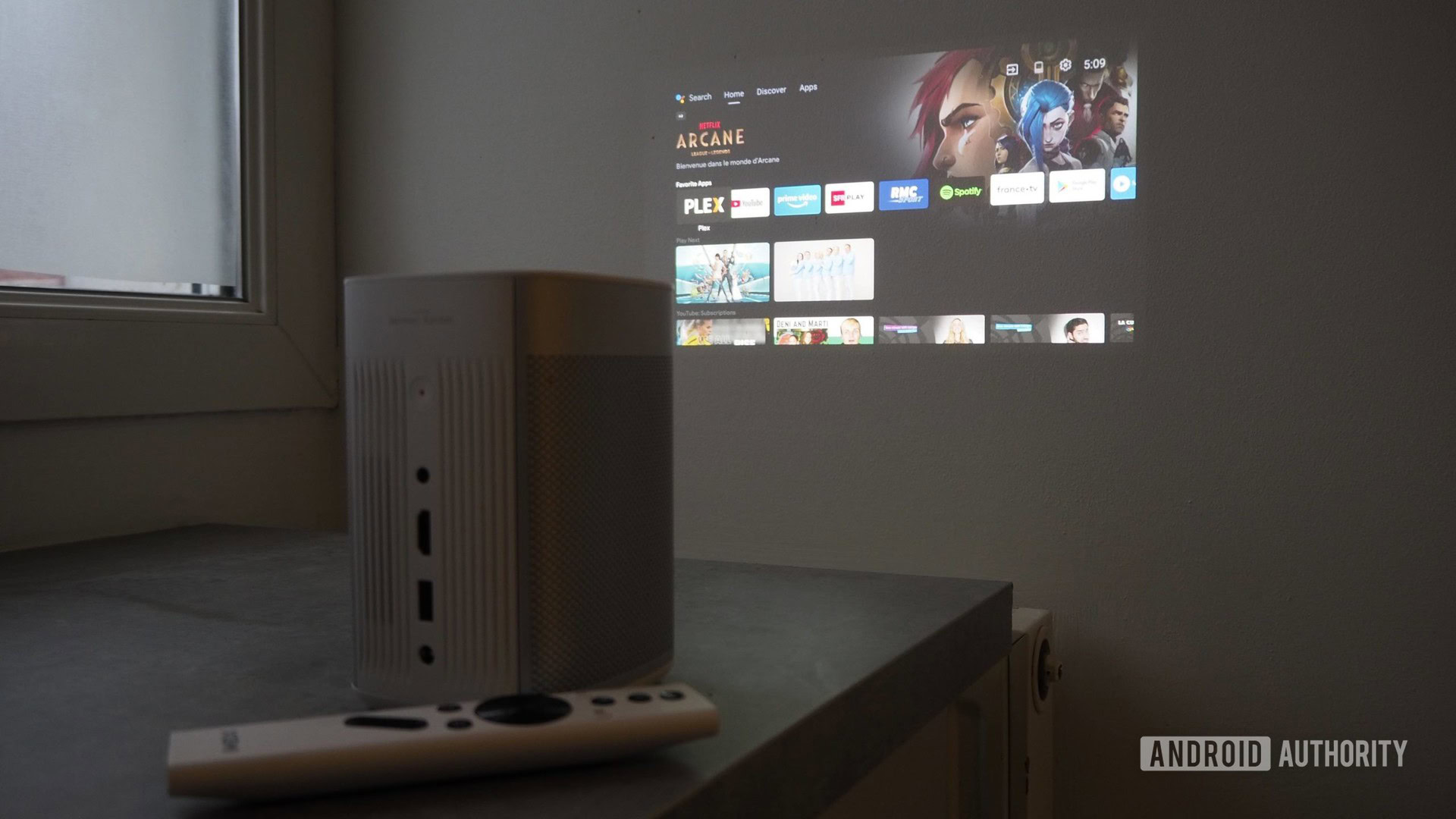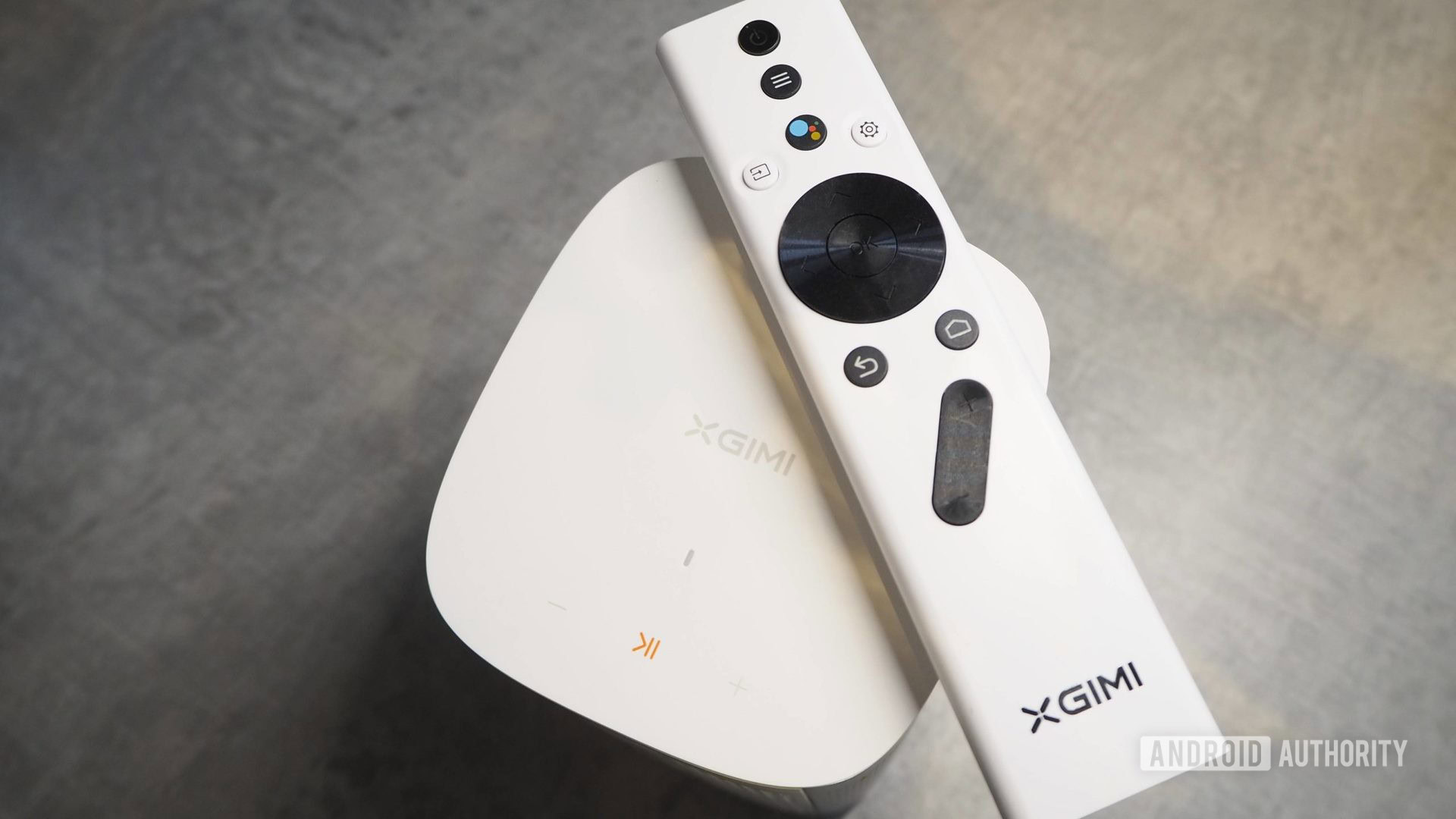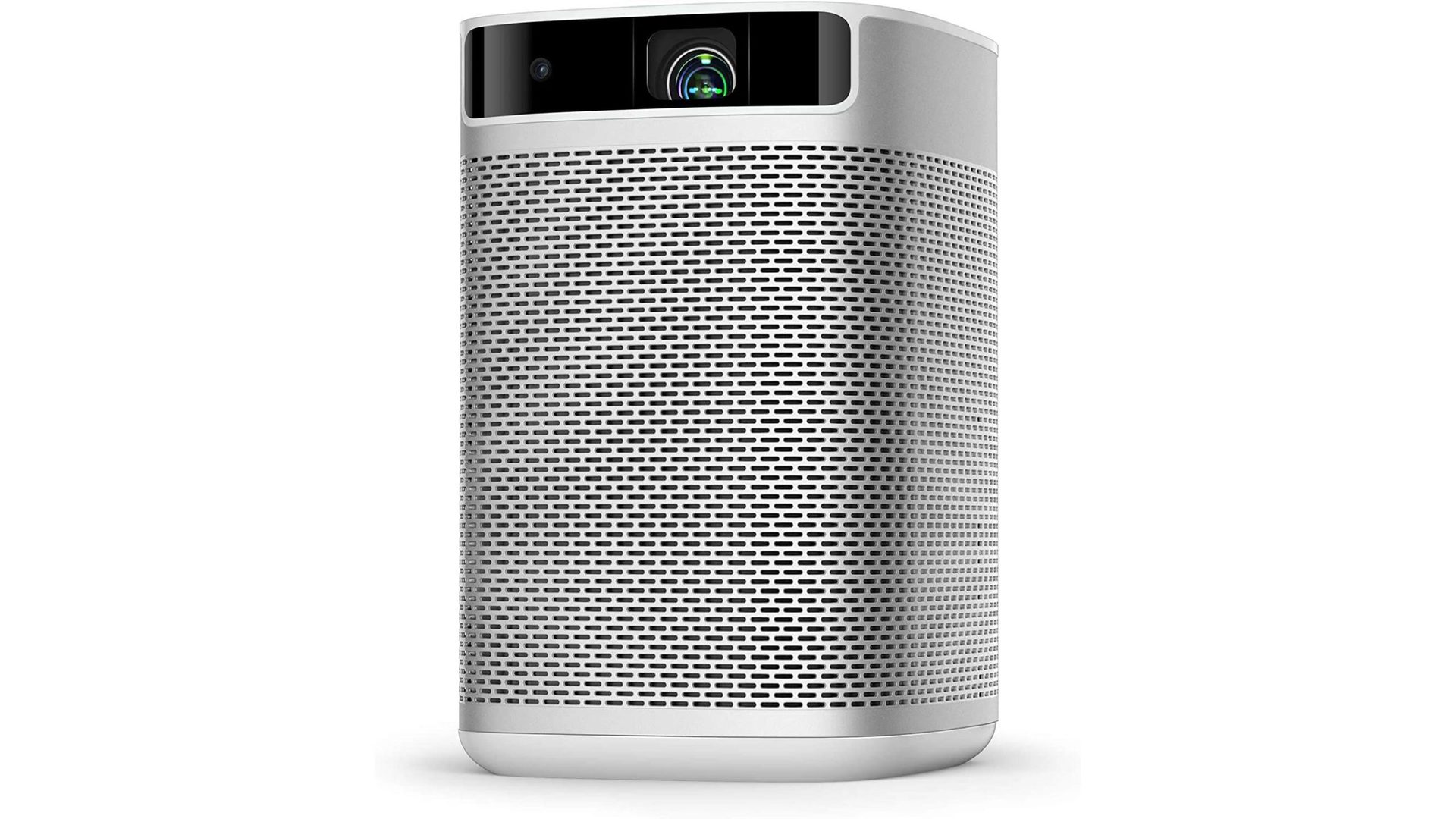Why I chose a projector over a smart display or tablet
Rita El Khoury / Android Authority
I have a rule in my home: The TV is for the living room. I don’t like seeing massive idle black screens in every room, and I certainly don’t like to have any distractions in the bedroom. But there are rare instances where I’m too exhausted or too busy, and I wish I could watch my favorite shows or teams while doing the dishes or before collapsing asleep. For every problem, there’s a solution, and this one requires a temporary “screen” that disappears when not needed, isn’t too tempting to use all the time, but is still practical enough to set up when wanted. I tried using an iPad for a while, then a smart display, but the real winner was a portable Android TV projector.
I’m currently touting the Xgimi Mogo Pro projector ($499 on Amazon) in my kitchen, which runs Android TV 9.0, has a 1080p image at 300 ANSI Lumens, plays audio through two 3W speakers, and offers USB and HDMI inputs too.
Why a projector

Rita El Khoury / Android Authority
It wasn’t until I started using projectors that I understood their appeal beyond makeshift home theatres and outdoor movie cinemas. There’s something very invisible and versatile about them, specifically the portable ones with a built-in battery. You charge them, prop them up wherever you want as long as there’s an empty white wall facing them, and ta-da, you’ve got a screen to watch things on. They even automatically adjust when moved so the image is always clear and focused. And when you no longer need them, you turn them off and that big screen disappears.
As I said earlier, that invisibility is an important aspect for me. I also appreciate that, unlike TVs, you don’t feel the “urge” to turn them on when you sit in front of them. The fact that the screen isn’t always staring at me makes all the difference, psychologically. A projector is as easy to turn on as a regular TV, but I find that the decision is more active and more involved. In rooms where watching TV is not a priority, that means I am more in control of when I want it on and when I’d rather it stays off.
Related: The best Android TV boxes you can get
In the kitchen, for example, where my husband and I spend most of our time cooking and catching up on our respective days, we don’t really need the distraction. We also appreciate the silence when doing the dishes solo; getting bored by the menial task makes our brains buzz with ideas. In those cases, the projector sits in a corner, off.
The fact that the screen isn’t always staring at me makes all the difference, psychologically.
However, there are those occasional times when there’s an important Real Madrid or Barcelona game, or a massive pile of dishes awaiting cleaning, so we turn on the projector, point it at the big white wall facing the countertop, and enjoy our entertainment. Doing the dishes while watching an oldie sitcom like The Nanny or Frasier definitely helps the pile shrink faster, especially when you start giggling at Niles’ antics (either of them, hah!).
Smart display vs Android TV projector

Rita El Khoury / Android Authority
Before getting the Mogo Pro, I had a Lenovo Smart Display in my kitchen. The two devices might seem like they serve similar purposes — music and video — but that couldn’t be any further from the truth in my experience.
Smart displays support more Google Assistant voice commands, offer a great interface for smart home controls, and are better suited for video calls. However, there’s one thing they do worse than a projector and that is playing video. Starting playback with voice commands or by casting from a phone is clunkier than just opening a native app and choosing content. The interface to control said playback is also more limited than what you get with Android TV.
There’s one thing smart displays do worse than a projector and that is playing video.
Take YouTube for example. On a smart display, you can only choose from a few recommended videos and you’re limited to basic playback controls. On Android TV, you have access to the entire TV interface, which means browsing your channels, checking your history and playlists, speeding up or slowing down playback, picking the video’s resolution, and turning on subtitles. Add the faster and more practical aspect of a physical remote and it’s a whole other experience.
Check out: The best Live TV streaming services
The same can be said of Plex, Prime Video, Disney Plus, Hulu, HBO Max, Spotify, and my local French apps for streaming live TV and sports. Notice that I didn’t mention Netflix — that’s because I don’t subscribe to the service and my current Xgimi projector doesn’t support it natively (though there are workarounds).
Do you currently own a projector?
1 votes
There’s room for both smart displays and Android TV projectors in a home, but for me, now, the video aspect is winning. So I’m more than happy to let go of the other benefits of something like the Nest Hub Max as long as I can enjoy my entertainment without too many roadblocks.
Besides, there’s something a little magical about picking up a small light object and knowing it offers a similar experience to a huge and heavy TV. Screen, speaker, all of the apps you want, a battery, and you don’t need two people to move it around. It certainly makes the TV experience a lot more versatile than it normally is.

Xgimi Mogo Pro
A TV in your pocket, or bag
With Android TV 9.0 on board, the Xgimi Mogo Pro is one of the best portable budget projectors. It offers a 1080p image with 300 ANSI Lumens, two 3W speakers, two to four hours of playback, and HDMI and USB inputs too.
For all the latest Technology News Click Here
For the latest news and updates, follow us on Google News.
